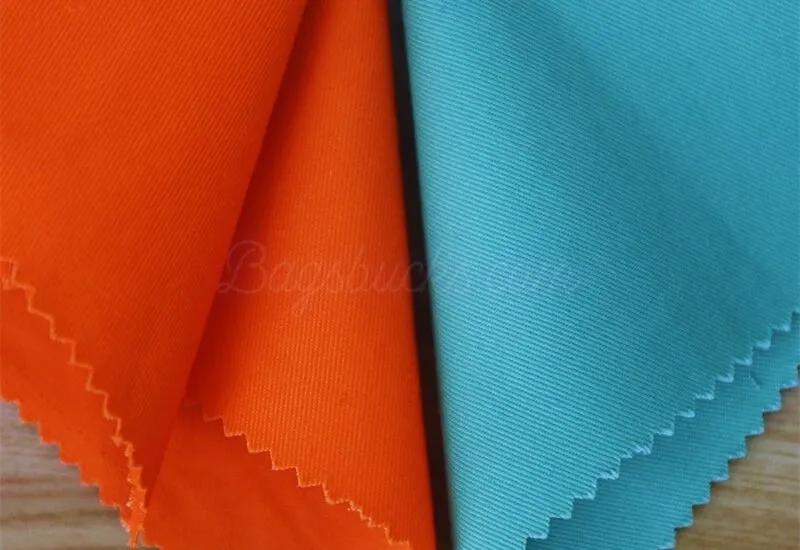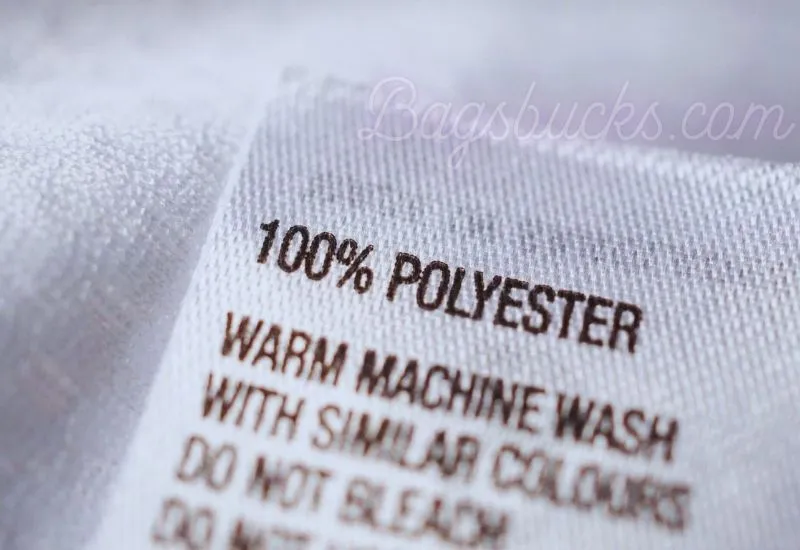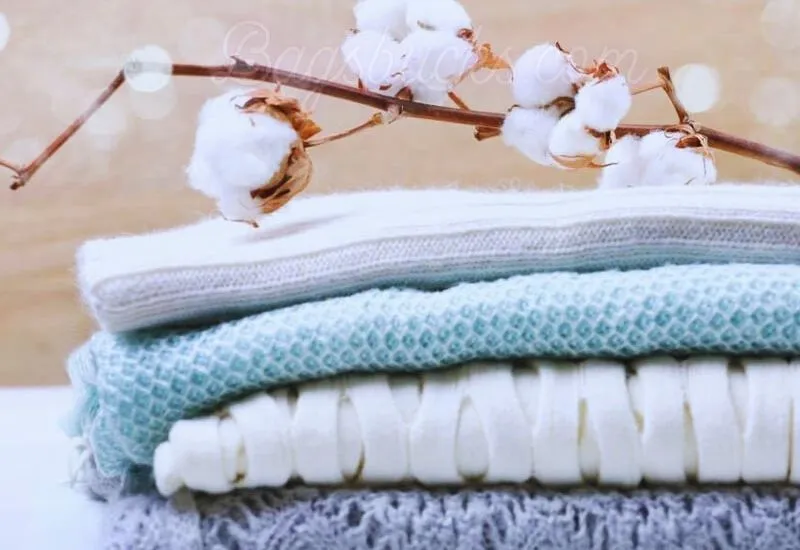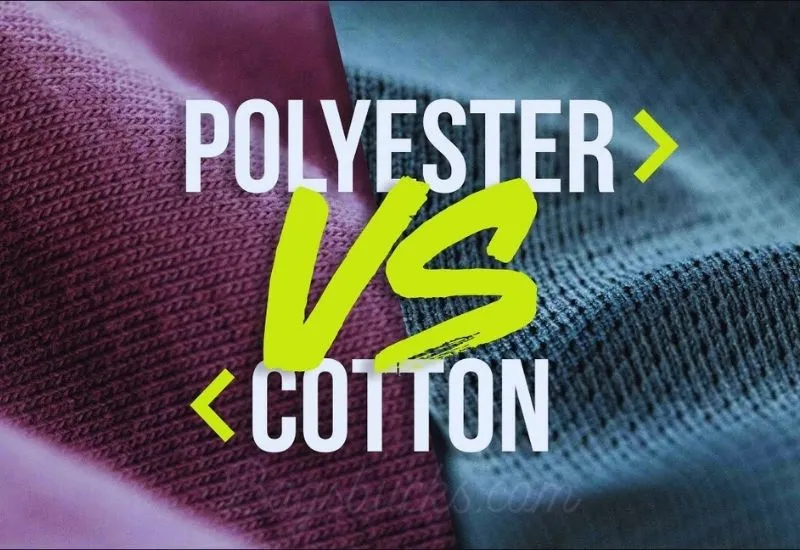
Edited by Abdullah Faraz on July 19, 2024
Polyester vs Cotton is an all-time favorite topic for the clothing-concern people. A suitable dress that matches your work’s nature ultimately keeps you comfortable and efficient. Without proper knowledge of polyester and cotton, it is hard to make the right decision about your next clothing.
Your active or sportswear will tear more quickly than expected, and your comfort during sleep and office work will diminish if you don’t understand the selection of dress based on differences between cotton and polyester fibers.
Some people think that Polyester and Cotton act the same in clothing. But it’s not right that both have different properties. After reading this blog, you’ll be able to make the right decision for your next dress in terms of health and ease.
What is Polyester?

Before comparing Polyester and Cotton, we take a look at Polyester and Cotton one by one.
Polyester is a synthetic fiber widely used in the textile industry. It has a unique shiny texture as compared to natural fibers.
How is Polyester made?
Polyester is prepared synthetically from petroleum-based products. By mixing raw materials and adding suitable excipients, the Polyester converts into a final structure. The major components of Polyester are:
- Ethylene glycol
- Dimethyl terephthalate (DMT) or purified terephthalic acid (PTA)1
The process of Polyester formation follows the principle/steps of Polymerization (a process in which small molecules called monomers combine to produce a large network of molecules called a polymer.
Properties of Polyester
- Polyester products are highly durable and resistant to most of the environmental conditions. They maintain shape and don’t tear with gentle stress.
- Polyester fibers are strong and resistant to stretching and shrinking.
- Polyester fibers are hydrophobic, meaning they do not absorb moisture.
- Polyester is naturally resistant to wrinkles, which makes it an easy-care fabric.
- Due to its low moisture absorbency, polyester dries quickly.
- Polyester is lightweight, which makes it comfortable to wear and ideal for use in applications where weight is a concern, such as athletic clothing and travel gear.
- Polyester is resistant to a wide range of chemicals, including most acids and alkalis.
- Polyester is relatively inexpensive to produce, and its long-lasting nature makes it cost-effective.
Uses of Polyester

Polyester is extensively used in the fashion industry due to its durability and designing-friendly features. T-shirts, Sportswear and activewear, outerwear (jackets, coats), lingerie, and undergarments are the commonly used products made of Polyester.
Polyester’s high durability makes it widely used in home furnishings, such as;
- Bed linens and duvet covers
- Curtains and drapes
- Upholstery fabrics for furniture
- Carpets and rugs
- Tablecloths and placemats
The strength, chemical resistance, and versatility of Polyester make it suitable for various industrial applications:
- Ropes and cords
- Conveyor belts
- Safety belts and harnesses
- Tire reinforcements
- Filtration fabrics
Polyester, especially in the form of polyethylene terephthalate (PET), is widely used in the packaging industry:
- Bottles for beverages and liquids
- Food containers and packaging films
- Cosmetic and personal care product packaging
In the automotive industry, Polyester gives the following applications due to its durability and resistance to UV rays and chemicals:
- Seat covers and upholstery
- Carpets and floor mats
- Seat belts
- Airbags
Polyester is used in medical textiles due to its strength, stabilizability, and resistance to body fluids:
- Surgical gowns and drapes
- Bandages and wound dressings
- Hospital bedding and curtains
SUMMARY
Polyester is a widely used product in the textile and fashion industry. From daily life items to industrial products, beverages to auto-mobiles polyester is playing its role directly or indirectly.
Pros and Cons of Polyester
| Pros | Cons |
| Highly Durable | Less Breathability |
| Wrinkle Resistant | Non- Biodegradable |
| Moisture Wicking | Heat Sensitivity |
| Easy Care | Less Comfort feel |
| Color Retention | Odor Retention |
Why Choose Polyester?
In these situations and types of wearing, Polyester could be a choice in your daily life products:
- If garments need to be washed multiple times a week, then Polyester is the best choice.
- If you need safety gear in terms of scratching and stains, then polyester products are safe to use.
- If you are concerned about dress wrinkles and excessive sweating, try polyester clothes.
What is Cotton?

Cotton fiber is a natural product that has been in the field of textile and clothing for thousands of years. It is known for its softness, versatility, good breathability, and texture.
Origin of Cotton
Cotton is obtained from the seed pods of the cotton plant. Then by further processing convert them to fibers. Then, fibers are woven to form the cotton fabrics.
Properties of Cotton
- The primary reason Cotton is so popular is its unparalleled softness and comfort.
- Cotton fibers allow air to circulate freely, making cotton garments breathable.
- Cotton is highly absorbent and capable of holding up to 27 times its own weight in water.2
- Being a natural fiber, Cotton is biodegradable, which means it breaks down naturally over time.
- Cotton is biodegradable, which means it breaks down naturally over time.
Uses of Cotton

- From casual wear like jeans and t-shirts to formal attire, Cotton is the best option.
- Cotton is widely used in home textiles, including bed linens, towels cur, trains, etc
- Cotton’s hypoallergenic and absorbent properties make it a valuable material in the medical field. It is used in bandages, gauze, and other medical supplies.
- Beyond clothing and home textiles, Cotton is used in various industrial applications. Cotton fibers can be found in ropes, fishing nets, coffee filters, and even in the production of paper.3
Pros and Cons of Cotton
| Pros | Cons |
| Extremely soft and comfortable | Tends to wrinkle easily |
| High breathability | Shrinkage on washing |
| Hypoallergenic-best for sensitive skin | Pilling in nature |
| Biodegradable and environment friendly | Stains are harder to remove |
| Highly absorbent | Expensive as compared normal clothes |
Why Choose Cotton?
Cotton is still a priority in clothing for the following reasons:
- If you want to have a comfortable dress to enjoy its softness, then Cotton is the best option.
- For garments requiring moisture-wicking properties without being 100% polyester, cotton blends are an excellent choice.
Difference between Cotton & Polyester (Summarized)
| Feature | Polyester | Cotton |
| Origin | Synthetic fiber derived from petroleum | Natural fiber from the cotton plant |
| Texture | Smooth, can vary depending on finish | Soft and comfortable |
| Durability | Highly durable, resistant to wear | Moderately durable, can wear over time |
| Wrinkle Resistance | Wrinkle-resistant | Tend to wrinkling |
| Moisture Wicking | Excellent moisture-wicking properties | Absorbs moisture, can feel damp |
| Breathability | Less breathable than cotton | Highly breathable |
| Stretch | Can be made stretchy with elastane | Limited natural stretch |
| Care Instruction | Easy care, machine washable, quick drying | Requires more care, can shrink when washed |
| Environmental Impact | Non-biodegradable, higher carbon footprint | Biodegradable, lower carbon footprint4 |
| Feel | Can feel synthetic, varies with blends | Natural and comfortable |
| Uses | Sportswear, outdoor gear, home textiles | Everyday clothing, bed linens, towels |
| Cost | Generally less expensive | Can be more expensive |
| Color Retention | Excellent, resists fading | May fade over time |
| Allergy Potential | Less likely to cause allergies | Usually doesn’t cause allergies but can in some individuals |
Conclusion
The polyester vs cotton debate ends in the right of both Polyester and Cotton. Each has its unique properties to stand out. But, we hope after reading this blog now you are able to make your next choice between Polyester and Cotton.
Must express your opinions or learning in the comment box.
Frequently Asked Questions
Article Sources
Bagsbucks provides reliable information with good-quality references to support the facts.
- Polyester Materials and Properties – Wiley (Online Library) ↩︎
- Cotton & Consumer – The National Cotton Council ↩︎
- Cotton Fiber: Physics, Chemistry and Biology – Springer Link ↩︎
- Biodegradability Study on Cotton and Polyester Fabrics – Sage Journals ↩︎
